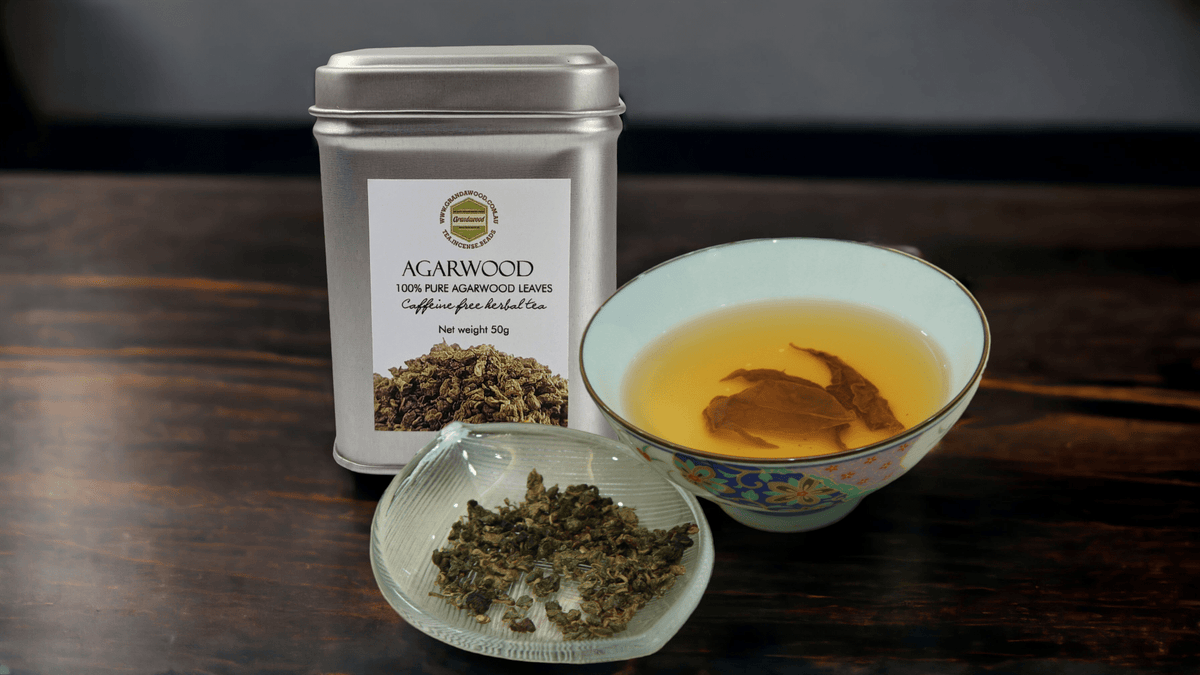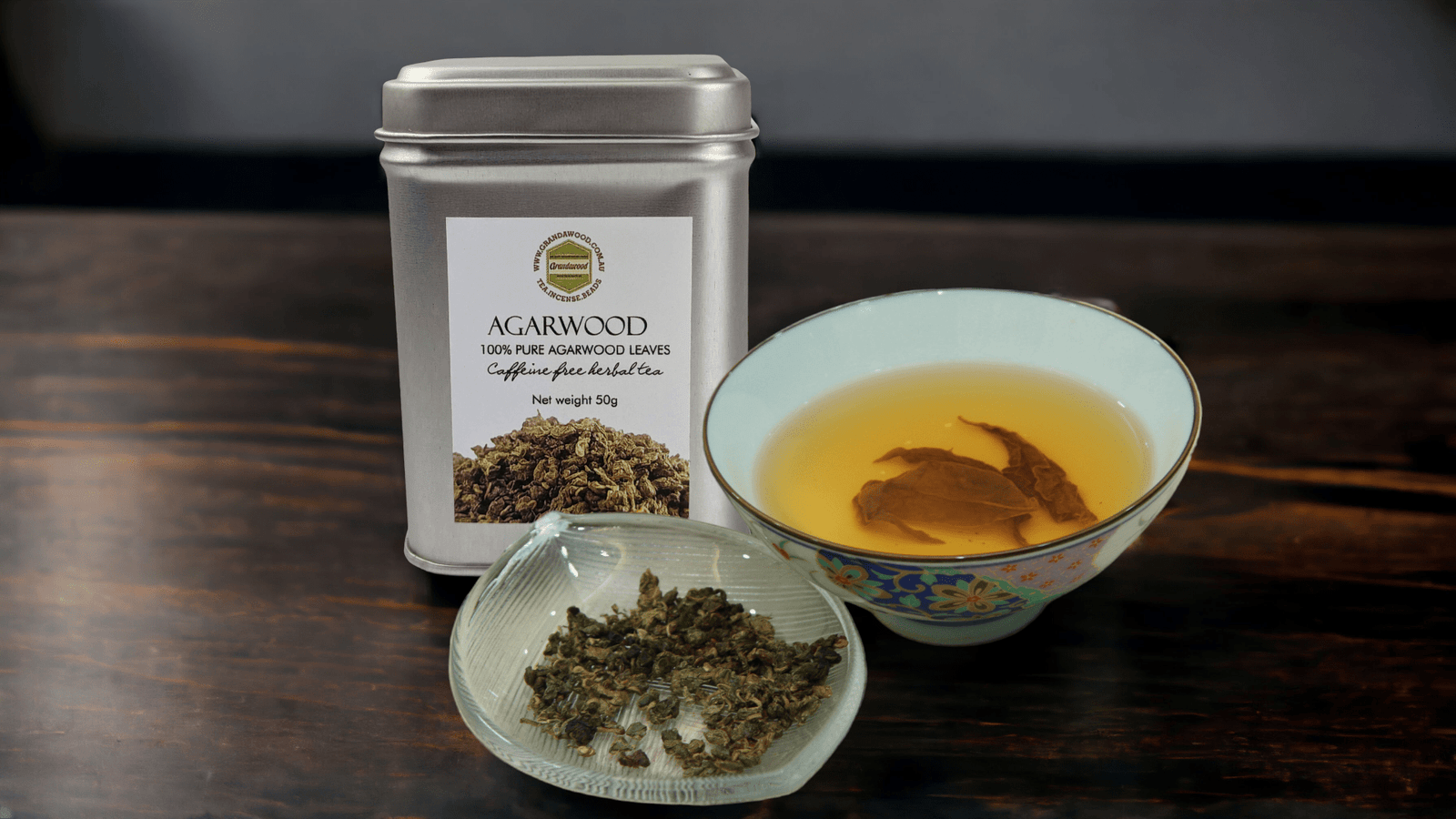
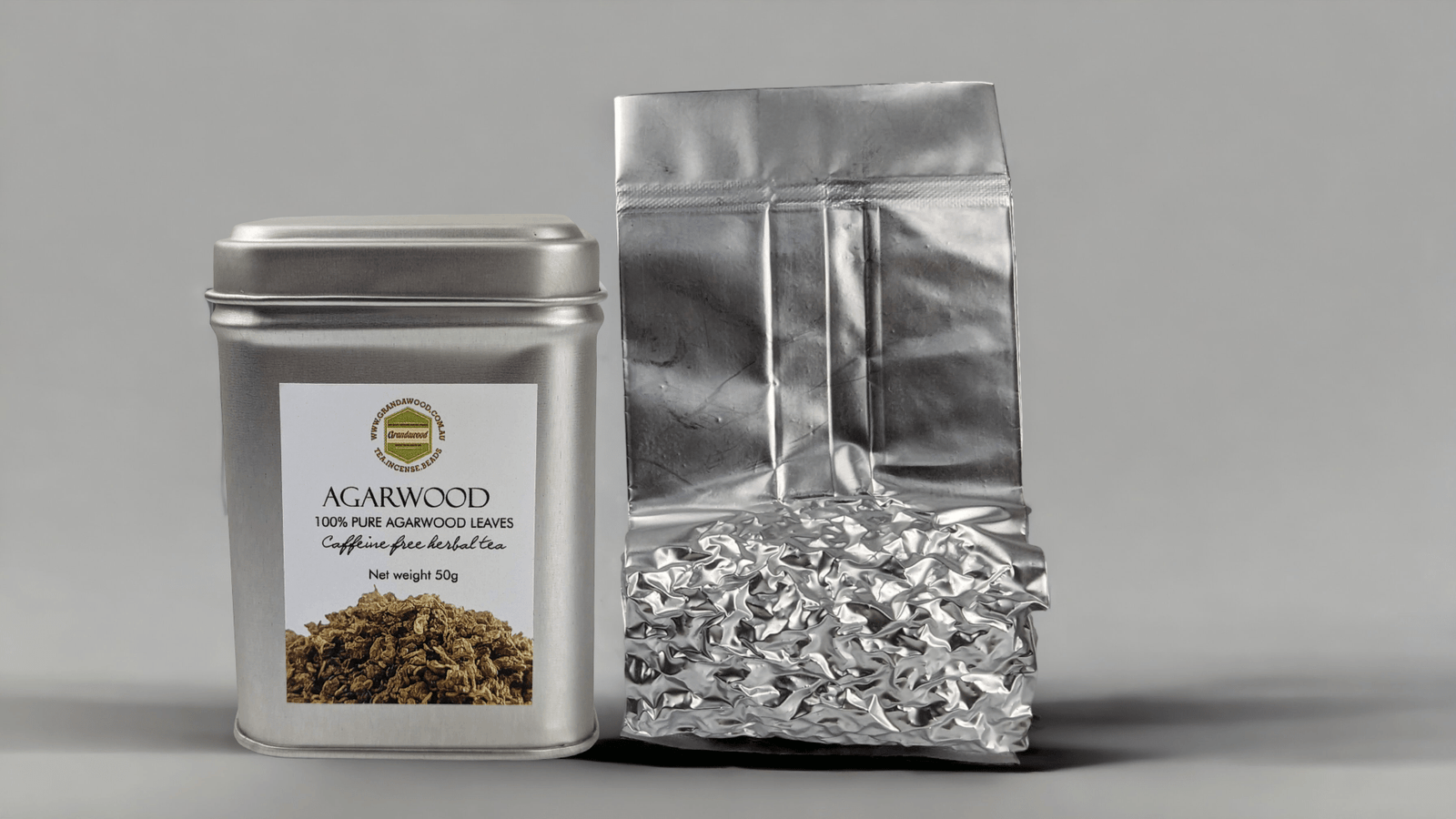
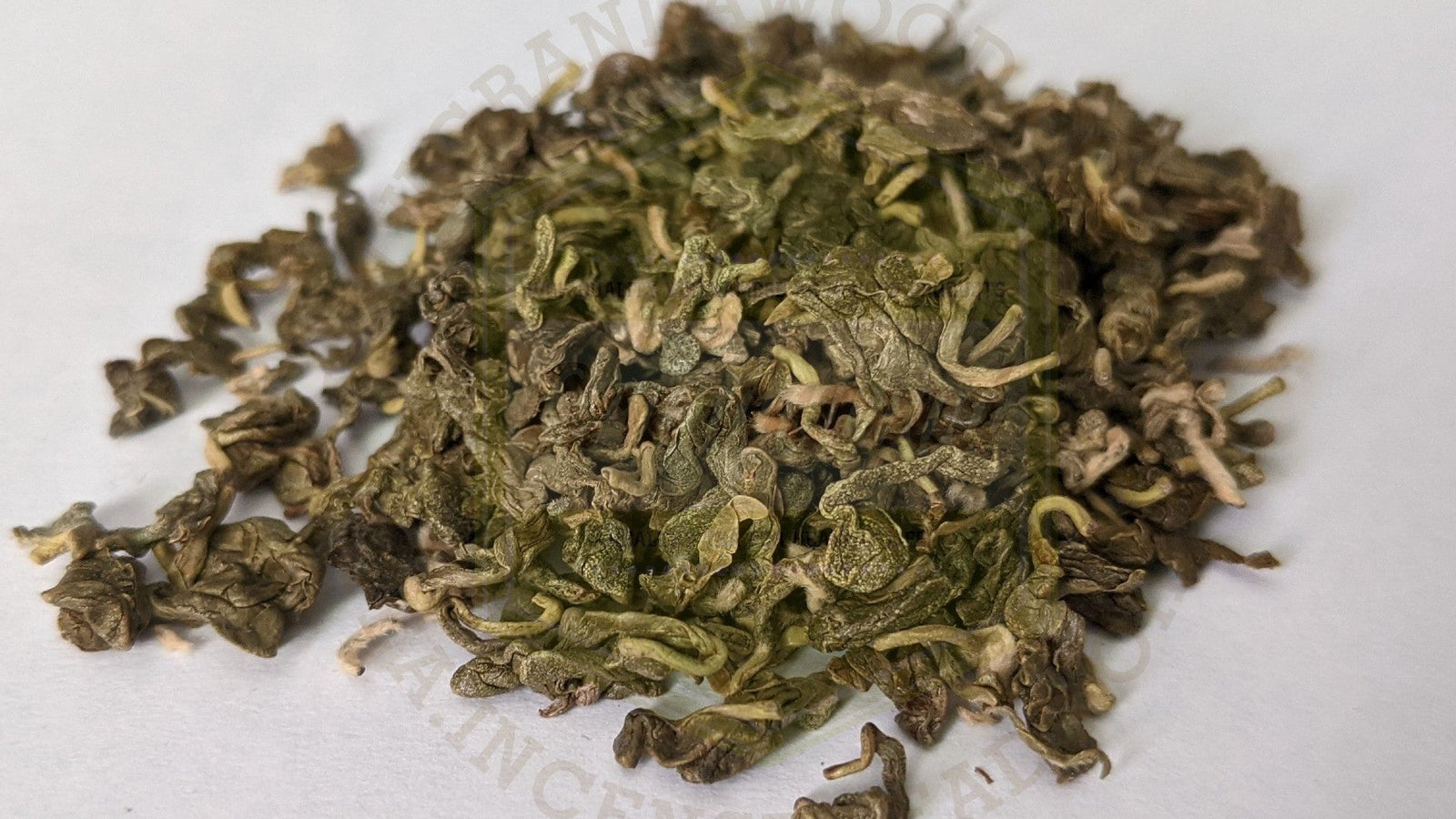
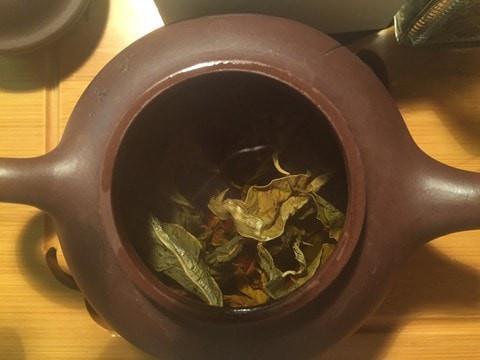
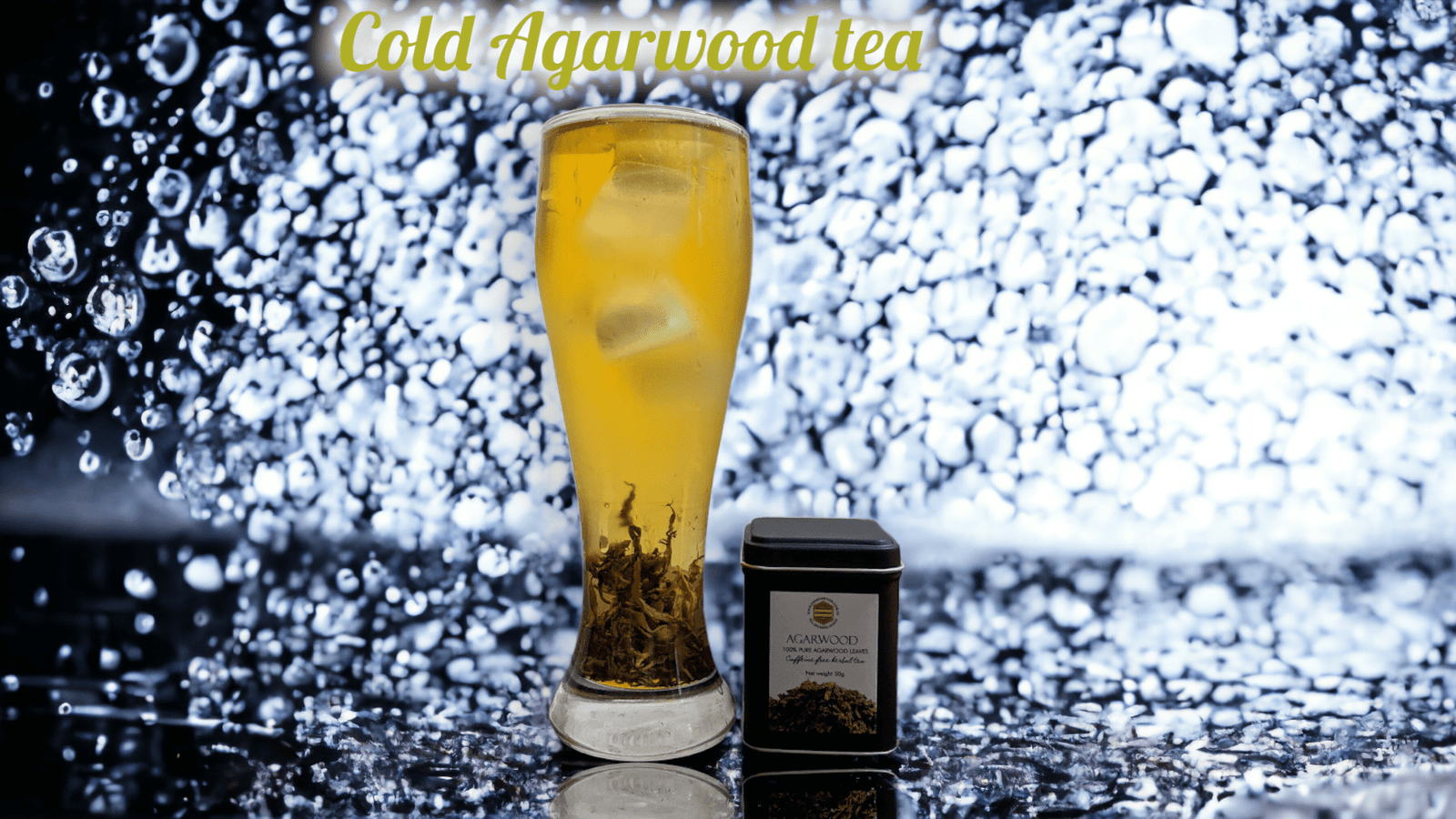
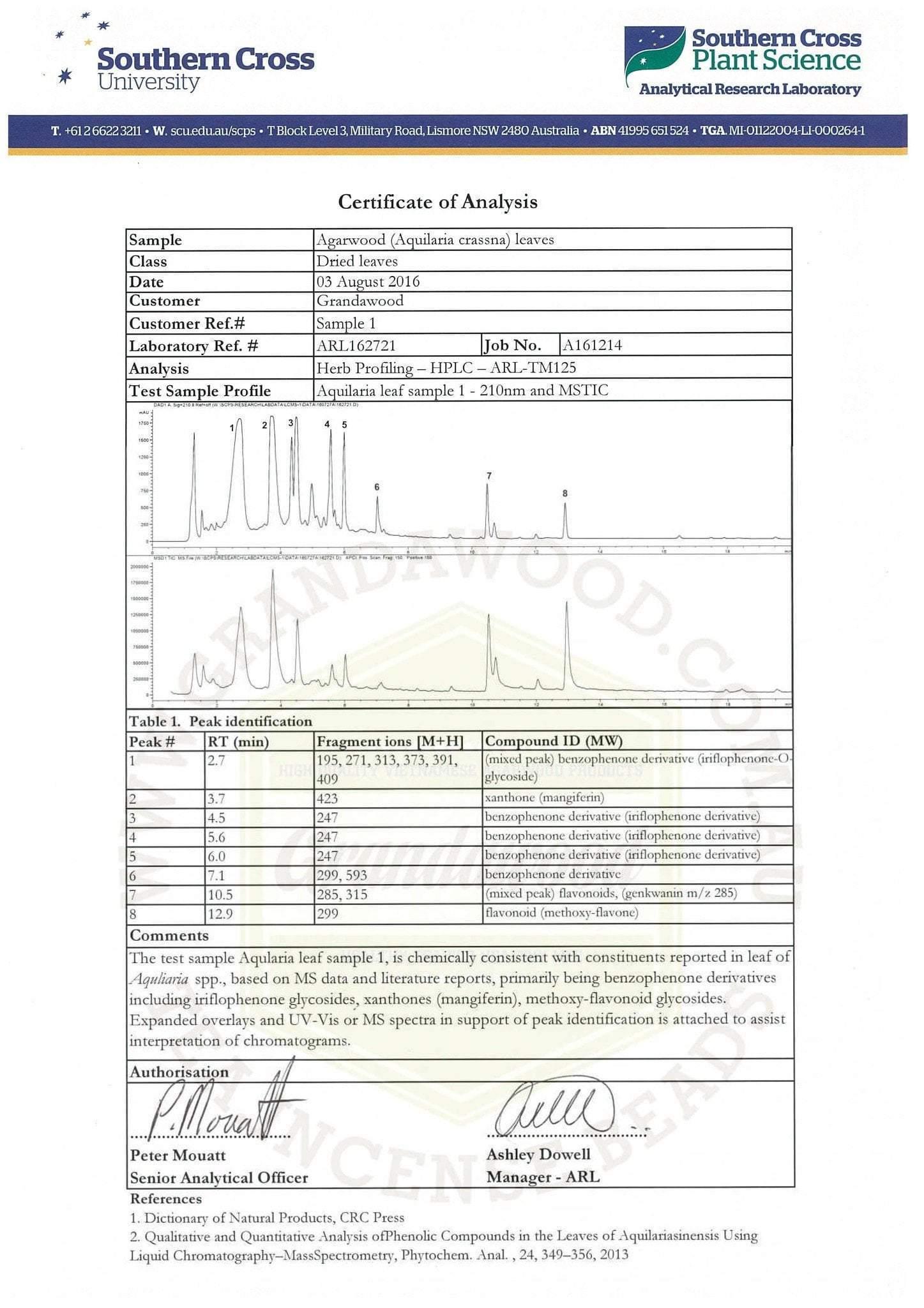
Handpicked Premium Young Aquilaria Leaves (Agarwood Tea)
Disclaimer
The information provided regarding Agarwood Tea and its potential health benefits is intended for educational purposes only. It should not be taken as a substitute for professional medical advice, diagnosis, or treatment.
While research has been conducted on the health benefits of Agarwood Tea, individual experiences may vary, and its effects may not be suitable for everyone. Therefore, it is crucial to consult with a qualified healthcare professional before using Agarwood Tea or any other herbal product, especially if you have an existing medical condition, are taking medications, or are pregnant or breastfeeding.
Benefits of Agarwood Tea
Agarwood Tea contains Mangiferin and Genkwanin, compounds known for their numerous health benefits. Research suggests that these components may offer anti-diabetic, anti-cancer, antiviral, anti-inflammatory, antioxidant, and immunoregulatory effects, among others.
- Anti-Diabetic and Anti-inflammatory: Studies have shown that Aquilaria leaves can help lower blood sugar levels, making them beneficial for managing diabetes (Choonong et al., 2023)
- Health benefits and pharmacology of Agarwood: Hashim et al., 2016 - This review covers the traditional use, phytochemistry, and pharmacology of Agarwood, highlighting its anti-diabetic, anti-cancer, anti-inflammatory, and antioxidant properties.
- Respiratory Support: By reducing inflammation and coughs, these leaves can aid in respiratory health (Aimi et al 2017)
- Immune System Support: Pang et al., 2023 - This study examines the immunomodulatory effects of Agarwood leaf extract, demonstrating its potential to enhance immune response.



What is agarwood tea?
Agarwood Tea is an herbal infusion made from the leaves of Aquilaria Crassna, a revered herb often referred to as "the wood of the gods." Unlike traditional tea derived from Camellia Sinensis, Agarwood Tea offers a unique and robust flavour profile that sets it apart within the herbal infusion family.

How does it taste?
The initial sip of Agarwood Tea may be bitter, but this bitterness is followed by a strong, tangy flavour that lingers pleasantly in your mouth, leaving a lasting impression.
"Bitter hey?" so why should I bother steeping it?
Why Embrace the Bitterness?
Though not everyone enjoys a bitter taste, it can be highly beneficial. Saponins, naturally occurring in Agarwood Tea, possess properties that can precipitate and coagulate red blood cells, form foams in aqueous solutions, and offer cholesterol-binding benefits.
What do the researchers say about this single-ingredient leaf - Aquilaria Crassna?
1) Constipation relief: Laxative effect from the ethanol extract of agarwood leaves (EEA) and Genkwanin Glycosides. Unlike many so-called "slim tea", where diarrhea is a big concern, the agarwood leaves' properties do not trigger this bowel movement (Mamoru Kakino, Gifu Pharmaceutical University)
2) Better, deeper sleep: Terpenoids with sedative and anxiolytic effects found in agarwood leaves. It would relax your body and calm your mind (Mamoru Kakino, Gifu Pharmaceutical University). Adenosine in Aquilaria leaves (Feng and Yang 2012) facilitates sleep and dilates the blood vessels. It signals the body to become drowsy and tells us to sleep to recharge our energy reserves.
3) Decrease cholesterol level: Polyphenol is another substance in our leaves, known for reducing the absorption of cholesterol in your body. (J Nutr Sci Vitaminol (Tokyo).)
4) Contains methoxy flavone, which is an anabolic agent help build muscle combined with the proper exercise
5) Mangiferin in agarwood tea significantly lower levels of uric acid in the blood (causing solid crystals to form within the joint, known as "Gout"). Please see the 2017 research below from Agarwood, Science Behind the Fragrance
Research has shown that the ethanolic extract from Aquilaria leaves can help lower blood sugar levels. Studies using diabetic mice and rats have shown that the extract significantly reduced blood glucose levels. The key to this sugar-lowering effect is believed to be a compound called 2α-hydroxy ursolic acid.
Interestingly, both ethanolic (alcohol-based) and water-based extracts from Aquilaria leaves work similarly to insulin in controlling blood sugar, helping to prevent spikes in glucose levels.
In addition, extracts from another variety, Aquilaria leaves, have been found to enhance the body’s ability to take in glucose by boosting the levels of a protein called GLUT4, which plays a vital role in maintaining overall blood sugar balance. These extracts are even more effective at increasing GLUT4 levels than some medications, such as pioglitazone.
Moreover, the ethanolic extract of Aquilaria leaves contains several powerful compounds, including mangiferin and iriflophenones. These compounds inhibit an enzyme called α-glucosidase, which slows down the absorption of carbohydrates from the intestine. This action helps to reduce blood glucose levels, making these compounds effective antidiabetic agents.
To read a full article about Aquilaria leaves, click here for a pdf of "Adam, Aimi & Lee, Shiou Yih & Mohamed, Rozi. (2017). Pharmacological properties of agarwood tea derived from Aquilaria (Thymelaeaceae) leaves An emerging contemporary herbal drink. Journal of Herbal Medicine. 10. 37-40. 10.1016/j.hermed.2017.06.002"
Agarwood herbal infusion tea is made of selected young and fresh Agarwood leaves. Many scientific studies have proved that it positively improves human health. For example, regular consumption offers better quality sleep, stress reduction, and constipation relief. With the aid of modern technology, we are looking forward to discovering more health benefits from Agarwood tea soon.
More science research with references is available here. and here
* Agarwood tea is not suitable to be consumed during pregnancy and breastfeeding. Please seek advice from your doctors or nutritionists.
Brew: 1g per 160 ml boiling water, brewing time from 3-4 minutes; varying brewing time will increase the depth and strength of the tea depending on personal preferences and can be refilled up to 4 times.
(1g is around 18 leaf balls circa for a teapot or 12 balls for a cup. If it is too bitter for you, reduce the number of leaves or add more water for the next brew depending on your taste)
*Please note that you could blend Agarwood leaves with green tea or herbal infusion to alter the taste.
If you want it cold, drop in some ice.

Reference
(1) (Maoxun, Yang & Qianhui, Zha & Yongfang, Huang & Yaoguang, Liang & Bin, Zhao & Chaoliang, Xie & Qiaoli, Lv. (2016). Study on the Dynamic Change of Mangiferin and Genkwanin in Aquilaria sinensis Leaves: A New Food Raw Material. Advance Journal of Food Science and Technology. 11. 408-411. 10.19026/ajfst.11.2650.

